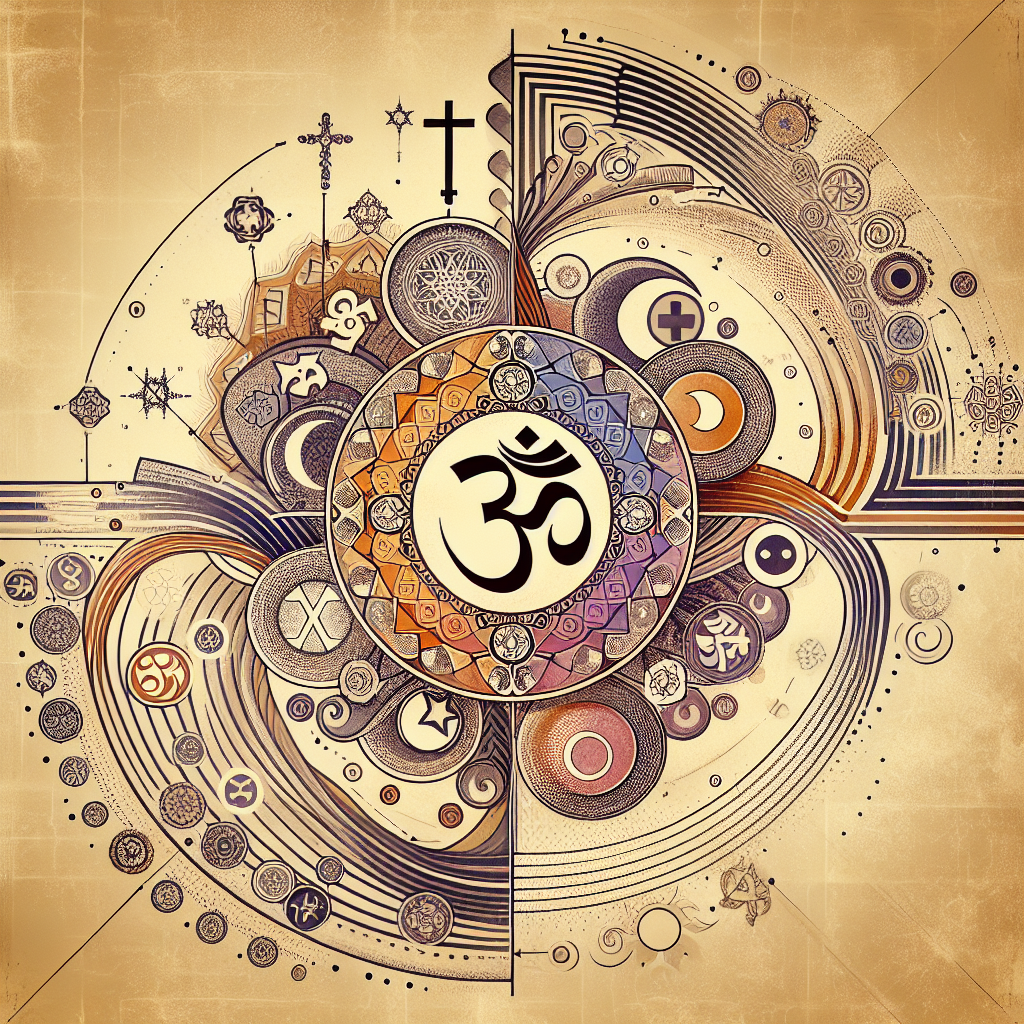Karma Unveiled: How Different Religions Interpret the Cycle of Cause and Effect
Karma is a concept deeply rooted in the spiritual and philosophical traditions of many cultures, most notably in Hinduism, Buddhism, Jainism, and Sikhism. The term itself is derived from the Sanskrit word "karman," which means "action" or "deed." At its core, karma refers to the principle of cause and effect—essentially the idea that every action has consequences that shape one’s future experiences, both in this life and potentially in future incarnations. While the fundamental idea of karma may be consistent across different religious traditions, the interpretations, implications, and nuances of this concept vary widely. This article aims to unravel the intricacies of karma as seen through the lens of different religions.
Hinduism: The Foundation of Karmic Belief
Hinduism provides the most well-known and comprehensive interpretation of karma. In this tradition, karma is closely associated with the belief in samsara, the cycle of birth, death, and rebirth. According to Hindu beliefs, every individual possesses an eternal soul (atman) which undergoes a series of reincarnations based on accumulated karma. Good actions, or "punya," generate positive karma, leading to favorable circumstances in this life or in future lives. Conversely, bad actions, or "papa," result in negative karma and can lead to suffering in the current life or eternal cycles of rebirth.
The Bhagavad Gita, one of the central texts of Hinduism, emphasizes the importance of performing one’s duty (dharma) selflessly to generate good karma. Actions taken with pure intent, even in the face of difficult circumstances, contribute positively to an individual’s karmic account. Importantly, Hinduism advocates that it’s not merely the actions themselves, but the intentions behind them that truly shape one’s karma.
Buddhism: A Path to Enlightenment
Buddhism, which evolved from Hindu roots, shares the concept of karma but elaborates it in unique ways. In contrast to the idea of an eternal soul, Buddhism teaches that there is no permanent self (anatta). Instead, karma is viewed through the lens of dependent origination—a concept that outlines how actions affect the individual and their experiences in the cyclical nature of existence.
In Buddhism, karma is not limited to physical actions but extends to thoughts and intentions as well. The Four Noble Truths and the Eightfold Path guide Buddhists toward ethical living, reducing negative karma and laying the groundwork for a path toward Nirvana—the ultimate liberation from the cycle of birth and rebirth. The idea that one can influence future rebirths through the cultivation of wisdom and compassion underscores the Buddhist practice of mindfulness and altruism.
Jainism: The Strictest Interpretation
Jainism presents one of the most rigorous interpretations of karma. In this tradition, karma is viewed as a form of matter that attaches to the soul as a result of one’s actions and intentions. Jains believe that every action, thought, or word can accumulate karma, making it imperative to lead a life of extreme non-violence (ahimsa) and self-discipline.
Unlike Hinduism and Buddhism, Jainism posits a more granular system of karmic consequences, wherein the type of karma one accumulates can directly influence the quality of subsequent lives. Jains aspire for moksha, or liberation, from the cycles of karma, which can be achieved through strict adherence to ethical principles, asceticism, and a life devoid of attachments and desires.
Sikhism: A Unique Perspective
Sikhism offers a distinct interpretation of karma shaped by its own spiritual context. While the concept of karma is acknowledged, Sikhs believe in the omnipotent nature of God and the capacity for divine grace (hukam) to transcend karmic limitations. In Sikh teachings, while actions do have consequences, ultimate salvation is attained through devotion, loving God, and living a righteous life rather than strictly through good deeds alone.
The Guru Granth Sahib, the sacred scripture of Sikhism, emphasizes that while one must be mindful of their actions, it is through remembrance of God and service to humanity (seva) that one can break free from the cycle of karma and achieve union with the Divine. The principle of equality among all human beings further elevates the importance of community and collective well-being over individual karmic tallying.
Common Threads: The Cycle of Cause and Effect
Despite the variances in interpretation, there are common threads that connect the understanding of karma across these religions:
Moral Responsibility: All traditions emphasize the ethical implications of actions. Good deeds lead to positive outcomes, while harmful actions have detrimental consequences.
Intentions Matter: The motivations behind actions are deemed crucial in shaping karmic outcomes. Selfless actions produce better karmic effects than actions driven by selfish desires.
Cyclical Nature: Each tradition incorporates some understanding of a cyclical existence—a pattern of birth, death, and rebirth governed by the law of karma.
- Ultimate Liberation: Although the paths may differ, each tradition recognizes the goal of liberation from the cycle of karma, albeit through different means, such as enlightenment, self-discipline, or divine grace.
Conclusion
Karma stands as a profound principle influencing human behavior and ethical considerations across different religions, each lending its unique perspective on the implications of one’s actions. From Hinduism’s complex web of samsara to the Buddhist emphasis on enlightenment, the Jain pursuit of liberation, and the Sikh focus on divine grace, the interpretations of karma enrich the global spiritual landscape. Understanding these interpretations fosters a deeper appreciation for the universal principles of moral accountability and the interconnectedness of actions and their consequences.
FAQs
1. What is karma in a nutshell?
Karma is the principle of cause and effect, suggesting that every action has consequences that influence one’s future experiences, both within this life and in potential reincarnations.
2. Is karma the same in all religions?
While the core concept of karma as a cycle of cause and effect is prevalent, different religions interpret and express this idea in varying ways. Hinduism, Buddhism, Jainism, and Sikhism each have unique beliefs regarding karma’s function and implications.
3. Does karma only apply to actions?
No, karma also encompasses thoughts and intentions. In many traditions, the motivation behind actions plays a significant role in determining whether the karma generated is positive or negative.
4. Can good deeds erase bad karma?
Different traditions have different views on this. In general, good actions can positively influence one’s karmic balance, but they do not necessarily erase previous negative karma; instead, they can mitigate future consequences.
5. How does karma relate to fate?
Karma and fate can be seen as intertwined, where karma influences one’s circumstances and experiences. However, karma emphasizes the importance of free will and personal responsibility in shaping one’s destiny through actions, whereas fate is often viewed as fixed or predetermined.
It seems like you might want to provide a prompt or request something specific! Please share more details or clarify what you need help with, and I’ll be happy to assist you., #Karma #Unveiled #Religions #Interpret #Cycle #Effect, #Karma #Unveiled #Religions #Interpret #Cycle #Effect, 1736415276, karma-unveiled-how-different-religions-interpret-the-cycle-of-cause-and-effect





